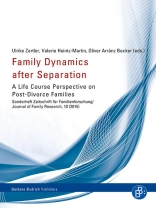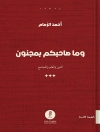In many Western societies, there has been a tremendous increase in family diversity over the course of the past few decades, resulting in a considerable prevalence of non-traditional family forms. The increased instability of marital and non-marital unions entails new challenges for both parents and children. In this special issue, family studies scholars from different disciplines examine from a life course perspective how re-partnering processes work and how family relationships are rearranged in order to adapt to the altered needs and requirements of post-separation family life.
O autorze
Prof. Dr. Ulrike Zartler Assistant Professor of Family Sociology, Department of Sociology, University of Vienna, Austria Valerie Heintz-Martin, Ph.D., Dipl.-Soz. German Youth Institute (DJI), Munich, Germany Prof. Dr. Oliver Arránz Becker Professor of Quantitative Methods in the Social Sciences, Institute of Sociology, Martin Luther University Halle-Wittenberg, Germany












